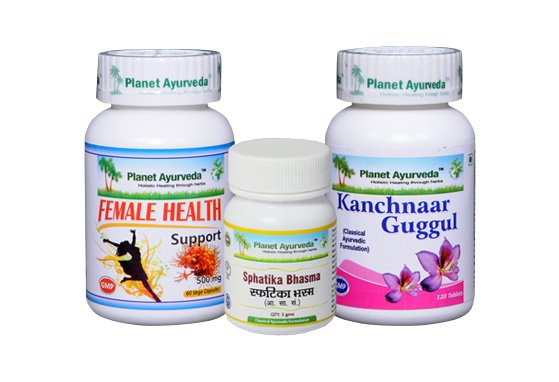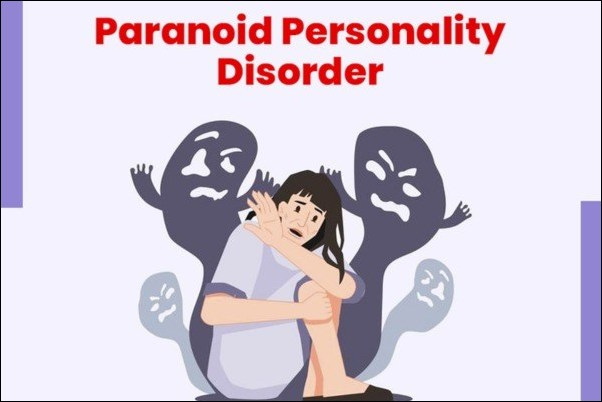How to Treat Nabothian Cyst Through Ayurveda
Abstract
A cyst is a lumpy growth filled with fluid or semisolid substances in it. Nabothian Cyst is found in females in their cervix, which is located at the lower end of the uterus, above the vagina. Cysts are non-cancerous and are not much harmful but still need to be removed soon from the body to prevent future complications and health problems. In this article, we will get to know the causes of its occurrence and associated symptoms with it. We will also discuss why cysts are so common these days and what can we do to prevent it and what are ayurvedic measures to cure the cyst problems.
Introduction
Nabothian Cyst is a cyst on the surface of the cervix also called the cervical canal. They are tiny bumps filled with mucous. These cysts are non-cancerous and are very commonly found nowadays in people. Nabothian cysts are small in size up to 4 millimeters in diameter. They are generally smooth and whitish in color. These are not painful but show some abnormal symptoms.
Why are cysts formed?
Cysts can grow anywhere in the body and they differ in appearance according to the location of their formation. They can be on the skin surface- sebaceous, epidermoid cyst, or inside body in any organ like- the breast, kidney, ovary, cervix, etc. Cysts are needed to be differentiated from pseudocysts. Cysts are not harmful until they are infectious and very large. Cysts are formed when the excess protein is trapped under the skin or a hair follicle. Nabothian Cyst is formed due to the irregular production of mucus that covers the healthy glands in the cervix, creating a barrier that traps the mucous inside the gland.

Why is it becoming common these days?
Due to excess unhealthy diet intake and living a sedentary life, unhealthy life and unhygienic intercourse habits had increased the chances of infections and diseases like Nabothian Cysts these days.
Ayurvedic aspect
Nabothian Cyst can be correlated to “Yoni Kanda”. Yoni Kanda is a swelling filled with pus and blood in the cervical region due to an imbalance of doshas and physical trauma. Trauma can be due to various reasons in the Yoni. Vata and Pitta Dosha’s aggravation leads to the formation of Kanda. The Kanda is described as irregularly shaped but with a rounded structure that is filled with fluid that contains pus and traces of infected blood. The ayurvedic treatment focuses on the pacification of doshas and treating the disease naturally.
Causes
The cause of mucous trap in the glands of the cervical canal is-
- Growth of excessive skin cells
- Trauma to the cervix
- Childbirth
- Chronic Cervicitis
- Neoplasia
- Cases after menopause
- Infection
Ayurveda texts describe the causes of cyst formation as
- Due to unhealthy food intake
- Inadequate Lifestyle
- Unhygienic and excessive intercourse
- Trauma in yoni with nails, teeth, or other sharp objects
Symptoms
Symptoms of Nabothian Cyst are
- Unusual bleeding between periods
- Discharge from vagina
- Pelvic pain
- Discomfort
- Symptoms of infection
Diagnosis
Diagnosis is confirmed with
- Physical examination
- Medical history of childbirth or trauma
- Per vagina examination
- USG-vagina
- CT scan
- MRI scan
- Colposcopy
- Cyst biopsy
Treatment
- The treatment of Nabothian Cyst is not recommended in modern pathy. Regular visits for the examination and check on the cyst size and growth are done.
- Cysts with no growth signs are not recommended for treatment, and
- Cysts expected to grow are removed Surgically- Cystectomy.
- Electrocautery and Cryotherapy are also recommended in some cases
General medications are continued-
- Antibiotics
- Analgesics
Herbal Remedies for Nabothian cysts by Planet Ayurveda
Ayurveda focuses on the removal of cyst whether it is small or large. The cystic goal is to reduce the size of the cyst and not let the cyst grow more than its size and also recover the diseases and abnormalities caused by cystic swelling. Planet Ayurveda provides many herbal medications that are effective in doing so. It is a herbal company that manufactures herbal drugs and is a GMP-certified ayurvedic company. We prepare natural medicines by using those authentic ways. The herbal medicines prepared by the company are prescribed throughout the world for the treatment of acute and chronic disorders. Their medicines are pure and do not cause any side effects. Also while formulating these remedies, experts take care of not adding any sort of harmful chemical.
Planet Ayurveda provides a Nabothian Cyst Care Pack for the management of Nabothian Cysts.
The full description of the pack is given below
Nabothian Cyst Care Pack
Ingredients list
- Kanchnaar Guggul
- Female Health Support
- Sphatika Bhasma
Ingredients Description
1. Kanchnaar Guggul
It is a classical combination of Kanchnaar (Bauhinia variegata) and Guggul (Commiphora mukul). They help in reducing cystic swelling by draining the excess Kapha from the body. They have beneficial effects in the treatment of liver cyst, polycystic ovarian disease, polycystic kidney disease, cervical canal cyst, and cysts in any part of the body.
Dosage – Take 2 tablets two times a day with water.
2. Female Health Support
It is an ayurvedic medicine prepared without adding any chemicals into it. It contains Ashoka (Saraca asoka), Lodhra (Symplocos racemosa), and Shatavari (Asparagus racemosus). These herbs balance all three doshas in the female body. Irregular periods, painful periods, heavy bleeding, hot flushes, irritability, inflammation in genitals, and cyst in any body part, are the overall reproductive health of the females maintained by these herbs. They ease the symptoms of cervical infection and cysts.
Dosage- Take 1 capsule twice daily.
3. Sphatika Bhasma
Sphatika has anti-inflammatory and antiseptic properties that reduce swelling and infection in the cervical canal region. The Bhasma is a pure form of sphatika. Along with these actions, sphatika is also useful in respiratory problems, abnormal uterine bleeding, menorrhagia, leucoderma, eye diseases, and diseases of blood vessels.
Dosage- Add 2 pinch of Sphatika bhasma in warm water and sit in the water without your clothes and garments for 10-15 min. Your hip or pelvic region should submerge in water.
Conclusion
Nabothian Cysts are not life-threatening but completely ignoring and not taking preventive measures on time may cause some serious complications in the future. Ayurveda has a vast choice of herbs for treating cystic infections. Our patent medications are more effective that are prepared with a combination of various herbs, these herbs altogether prevent the further progression of the Cyst and treat the disease



![Herbal Remedies for Paranoid Personality Disorder Herbal Remedies for Paranoid Personality Disorder [PPD]](https://www.blog.drvikram.com/wp-content/uploads/2023/08/Herbal-Remedies-for-Paranoid-Personality-Disorder.png)
